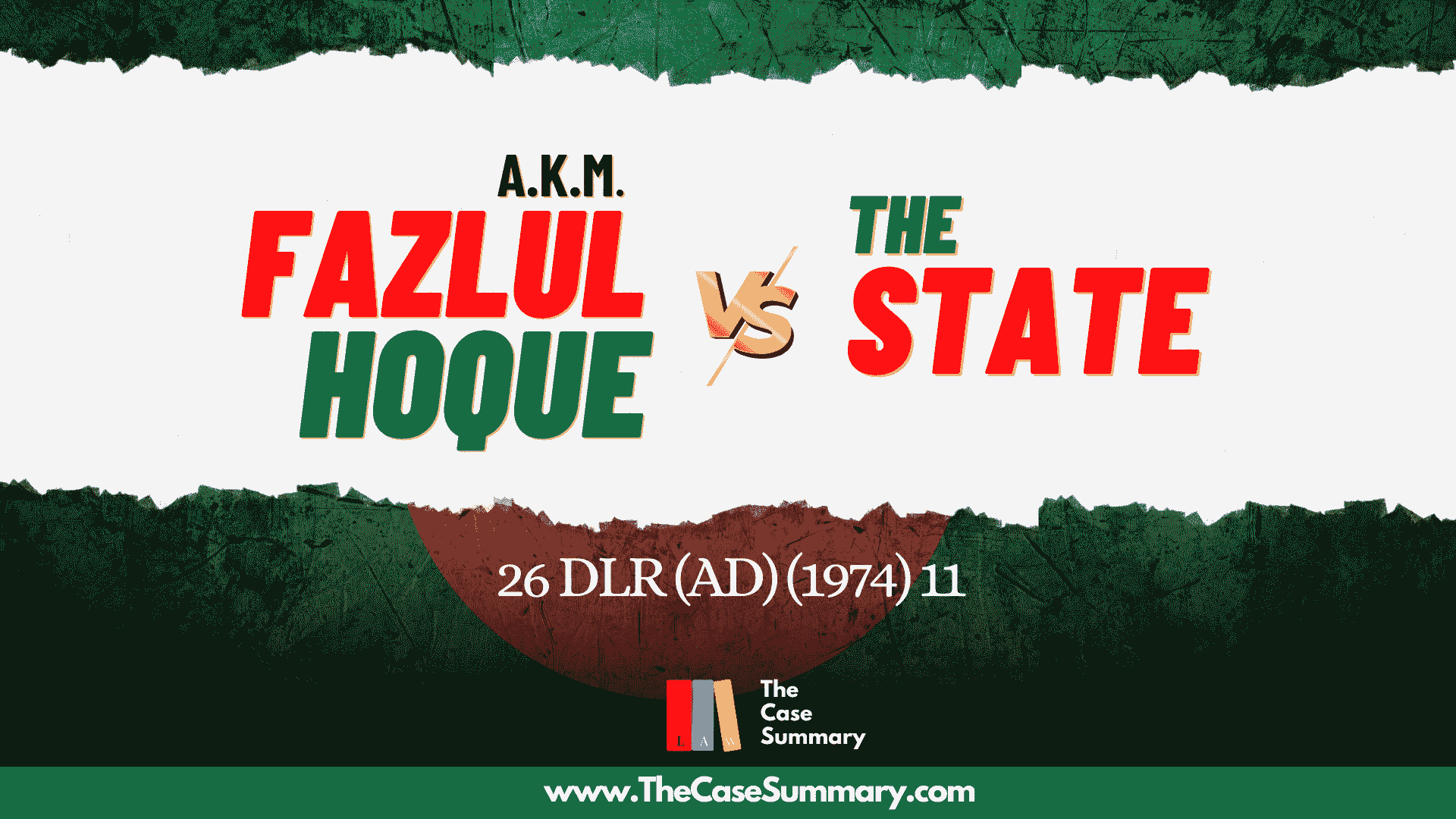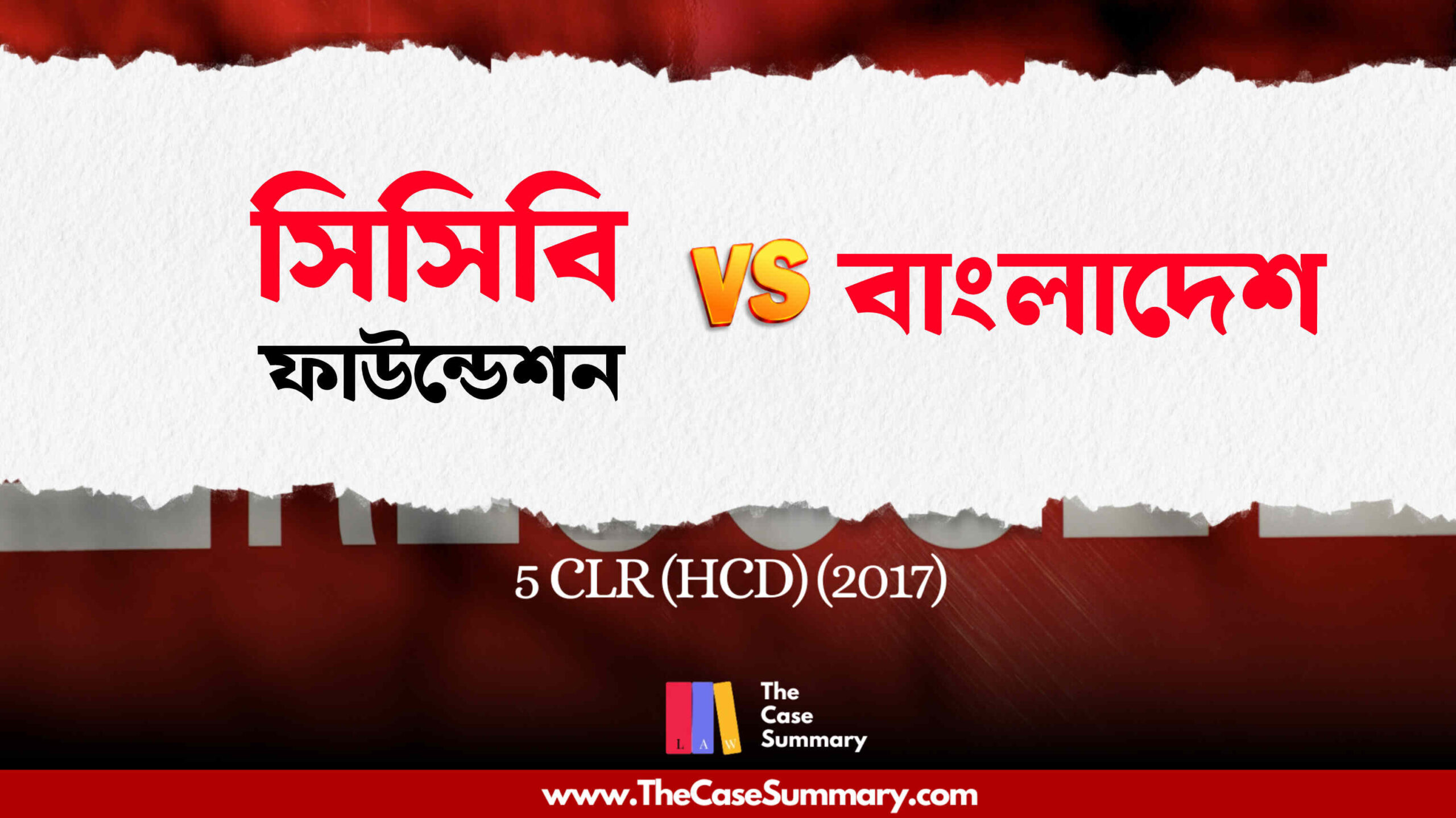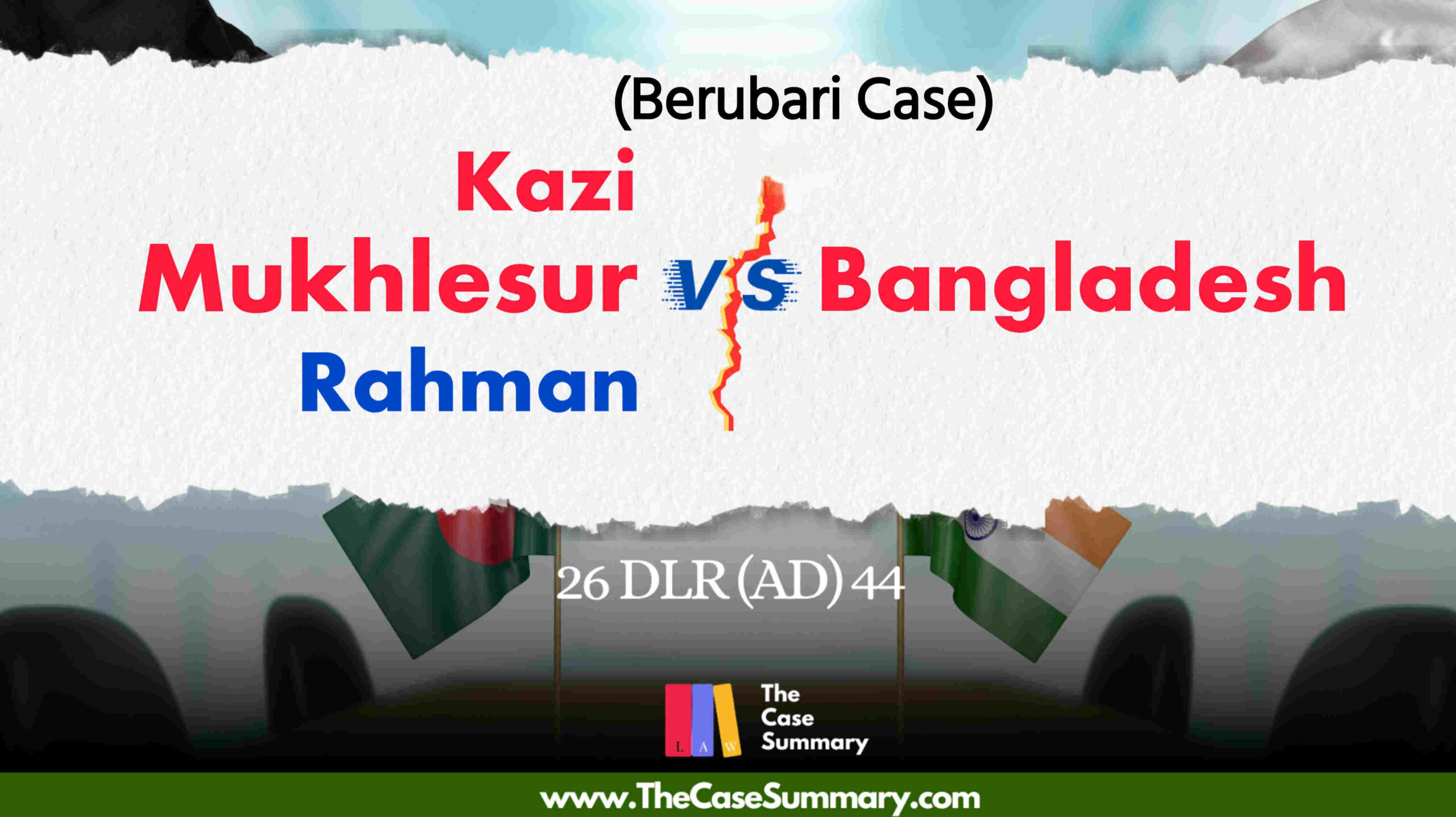A.K.M. Fazlul Hoque and Others vs State
Reference : 26 DLR (AD) (1974) 11
Jurisdiction : Bangladesh
Appellant : A.K.M Fazlul Hoque and others (Defendant in the Court of first instance)
Respondent : Government of the People’s Republic of Bangladesh (Plaintiff in the Court of first instance)
Background :
On 10 April, 1971, the Proclamation of Independence was issued at Mujibnagar, initially designating Sheikh Mujibur Rahman as the President of Bangladesh. According to the proclamation, the ultimate executive and legislative power as well as the power to select the Prime Minister and other ministers was vested in the President. The governmental system of Bangladesh was to be a presidential one. In January of 1972, after the independence of Bangladesh, Sheikh Mujibur Rahman promulgated the Provisional Constitution of Bangladesh Order, 1972. Clauses 5 to 8 stated that the governmental system has been altered from a presidential system to a parliamentary or cabinet system. The provision also stipulated that the Prime Minister would be vested with all the lawmaking powers and the President would act based on the advice given by the Prime minister. Therefore, an appointment was required to elect a new prime minister and cabinet. Following this, Sheikh Mujibur Rahman resigned and appointed Justice Abu Sayeed Chowdhury as the second President of Bangladesh, according to the clause 8 of the Provisional Constitution of Bangladesh Order, 1972.
President Abu Sayeed Chowdhury later issued the Bangladesh Collaborators (Special Tribunals) Order, 1972 in order to establish a tribunal to prosecute the local collaborators who helped or supported the Pakistan Army to carry out the Bengali genocide during the Liberation war of 1971.
Facts :
The petitioners were two accused individuals who were facing charges before a special magistrate court in Mymensingh under President’s order no. 8 of 1972, also known as the Bangladesh Collaborators (Special Tribunals) Order, 1972. During the trial in The High Court Division, two petitioners claimed that they should not be punished under the Order of 1972 which they considered to be invalid. The question was raised whether the Order was valid. The High Court Division stated that the Order was valid. Based on this decision, they brought an appeal to the Appellate Division.
Issues :
1. Was the Bangladesh Collaborators (Special Tribunals) Order, 1972 valid?
2. Was the appointment of Justice Abu Sayeed Chowdhury as the President valid under the Provisional Constitution of Bangladesh Order, 1972?
3. Did the President, as designated by the Proclamation of Independence, have the authority to implement constitutional provisions that transitioned the governmental system from presidential to parliamentary?
Arguments :
The learned counsel for the petitioners argued that the Collaborators Order was issued by an unauthorized authority, making it void. They contended that the appointment of President Abu Sayeed Chowdhury was similarly unlawful, as the order appointing him was later nullified by the Provisional Constitution of Bangladesh Order, 1972. This order had shifted the government to a parliamentary democracy, limiting the President’s authority to enact constitutional changes.
They also argued that, the Provisional Constitution Order violated the original structure outlined in the Proclamation of Independence. According to the Order Sheikh Mujibur Rahman, who was designated as the President in the Proclamation of Independence had no authority to make such changes to the government system.
The petitioners also submitted that clauses 5 to 8 of the Provisional Constitution of Bangladesh Order, 1972 transferred executive powers from the President to the Prime Minister, contradicting the Proclamation of Independence which had vested executive power in the President. Consequently, they stated that the shift in the governmental structure was invalid, rendering Justice Abu Sayeed Chowdhury’s appointment as President void. As a result, all laws and orders issued by him, including the Bangladesh Collaborators (Special Tribunals) Order, 1972, were also invalid.
Decisions :
The Appellate Division dismissed the appeal. The Court disagreed with the petitioners by ruling that, the Proclamation of Independence conferred not only executive power but also the legislative power to the President. This legislative authority was significant, enabling the President to form an interim constitution, which he promulgated as the Provisional Constitutional of Bangladesh Order, 1972. The Court found no clauses in the Proclamation of Independence limiting the President’s power to bring changes to the governmental system. As a result, the Court stated that the power shift from the Presidential system to the Parliamentary system stipulated in the clauses 5 to 8 of the 1972 order was valid and the appointment of the new president under clause 8 of the order was lawful. Therefore, since Justice Abu Sayeed Chowdhury’s appointment was valid, thus the Bangladesh Collaborators (Special Tribunals) Order, 1972, issued by him, was also valid.
Relevant Laws :
- The Provisional Constitution of Bangladesh Order, 1972
- Clauses : 5-8
- Bangladesh Collaborators (Special Tribunals) Order, 1972
- Proclamation of Independence
Author :
1. Nusiba Hasan Ohee
Note : The Case Summary is a platform by the law students, for the law students. We aim to summarize the facts and decisions of various important cases in both Bangla and English with utmost caution. However, this platform is in no way a replacement for going through the complete judgements by the law students and we discourage any learner from relying on case summaries alone. Thank you



